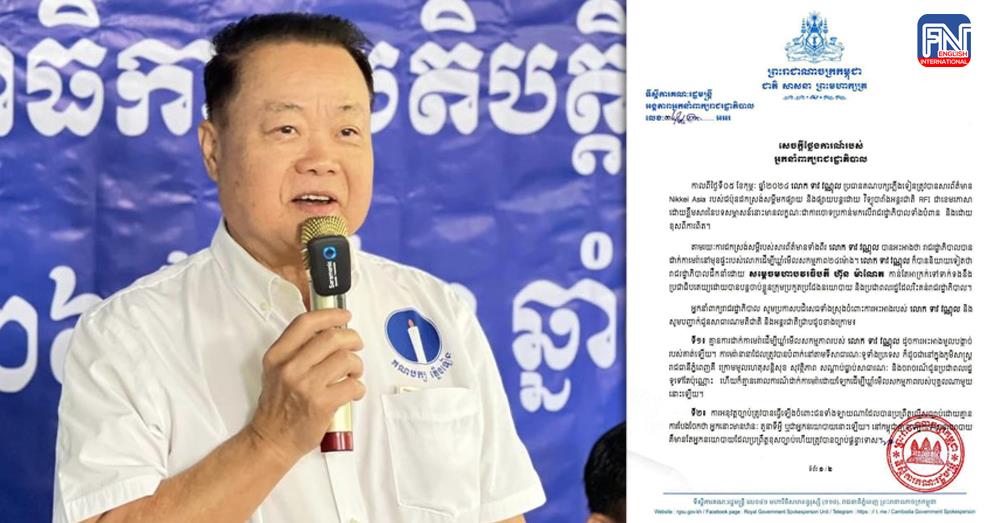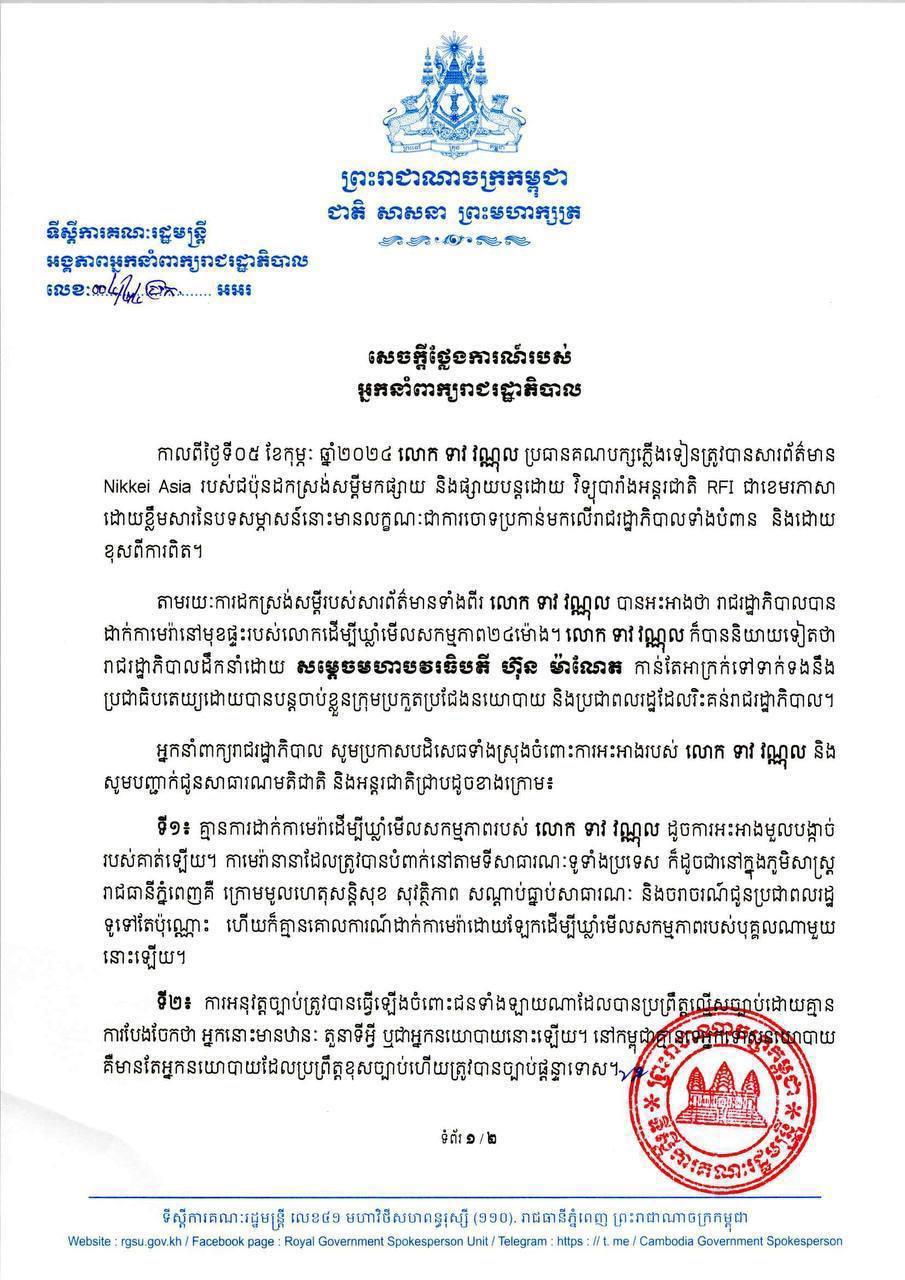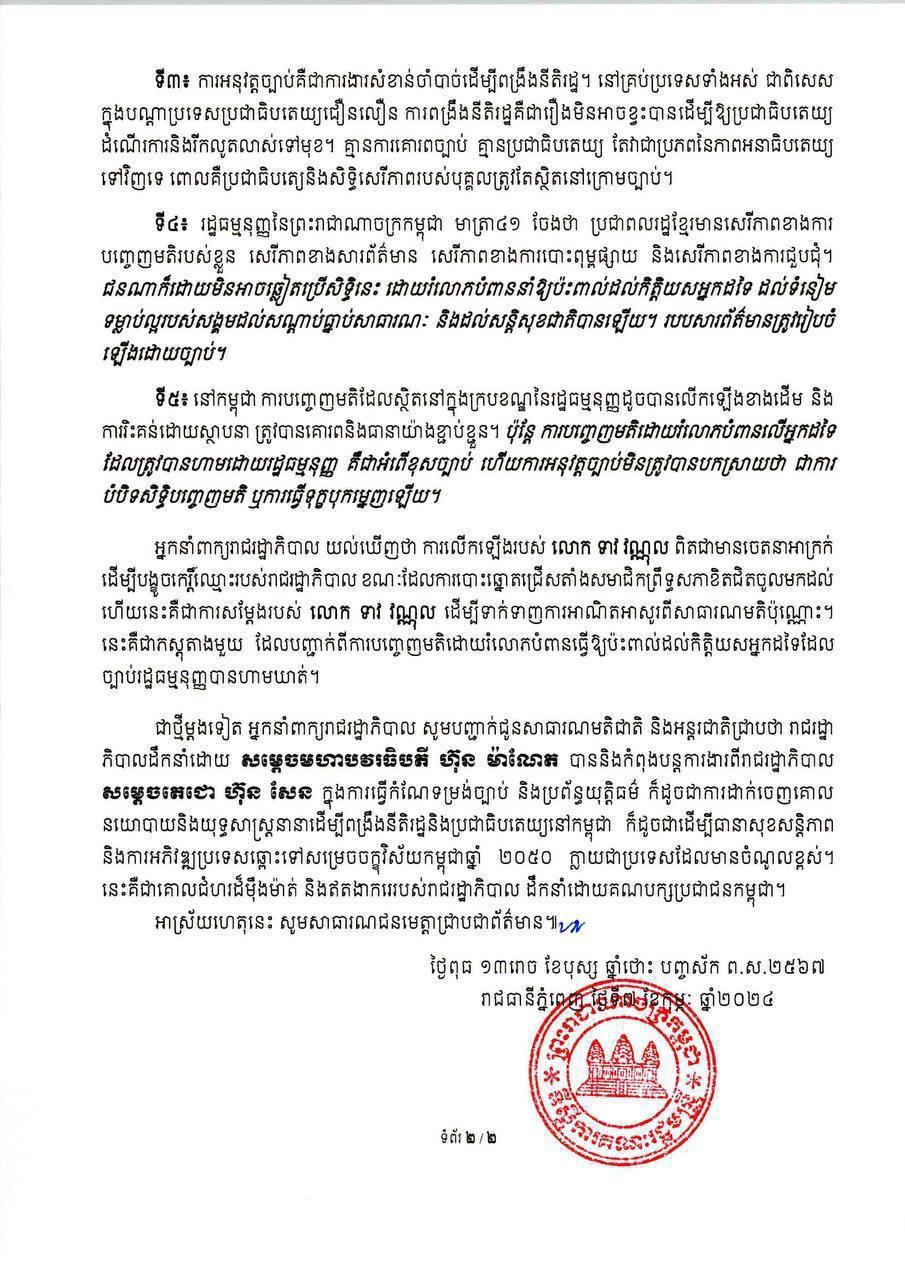Phnom Penh (FN), Feb. 7 – A spokesman for the Royal Government issued a statement on Wednesday (Feb. 7) denying defamatory statements made by Teav Vannul, the President of the Candlelight Party, as reported in Japanese Nikkei Asia and Radio France International (RFI).
On 5 February 2024, Teav Vannul, as quoted by Nikkei Asia and RFI in Khmer, accused the Royal Government of installing surveillance cameras in front of his residence to monitor his daily activities. Vannul added that democracy had deteriorated, citing the arrests of political rivals and government critics as examples.
In this case, the government spokesman denied Teav Vannul's false statement and would like to inform the national and international public as follows:
First, there are no cameras specifically designated to monitor the activities of Teav Vannul. The surveillance cameras installed in public areas across the country and within Phnom Penh serve the purposes of security, safety, maintaining public order, and managing traffic for the general public. Importantly, there is no established policy to deploy separate cameras for the sole purpose of monitoring the activities of any individual.
Second, law enforcement is impartially applied to individuals who have violated the law, irrespective of their status or political roles. In Cambodia, there are no recognized political prisoners; rather, politicians who engage in unlawful activities face legal consequences in accordance with the established legal framework.
Third, law enforcement plays a crucial role in reinforcing the rule of law. This task is particularly vital in all nations, especially within developed democracies, as the robustness of democracy hinges on a foundation of strong legal principles. In the absence of respect for the law, democracy becomes vulnerable to anarchy. Therefore, democracy and the protection of individual rights must be firmly grounded in adherence to the law.
Fourth, Article 41 of the Constitution of the Kingdom of Cambodia stipulates that Khmer citizens shall have freedom of expression, press, publication and assembly. No one shall exercise this right to infringe upon the rights of others, to affect the good traditions of the society, to violate public law and order and national security. The regime of the media shall be determined by law.
Fifth, in Cambodia, expressions falling within the constitutional framework and constructive criticism are not only respected but also guaranteed. However, actions that contravene the constitution are considered illegal. It is essential to clarify that law enforcement in such cases is not intended as a suppression of freedom of expression or persecution but rather as the enforcement of legal boundaries set by the constitution.
According to a government spokesman, Teav Vannul's comments were deemed malicious with the apparent intention of undermining the government's image, especially in the lead-up to the Senate election. This underscores the belief that abusive speech, as demonstrated, is in violation of constitution.
=FRESH NEWS


